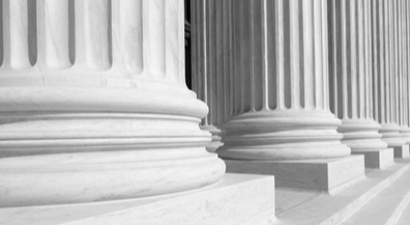Having its Cake (or Bread) and Eating it - The Consequences of the Competition Commission's Decision Not to Include Premier in its Bread Price Fixing Complaint Referral
On 4 November the Supreme Court of Appeal found that the Competition Commission had to live with its choice not to refer the bread price fixing complaint against Premier Foods to the Competition Tribunal for determination. Black Sash, COSATU and the Children's Resource Centre, amongst others, wanted to sue Premier along with the other cartel participants for damages caused by the price-fixing activities. In order to do so, they needed a notice issued by the Competition Tribunal certifying that the damages claim was based on a prohibited practice in terms of the Competition Act.
The Competition Commission investigates complaints. If, when it finishes that investigation, it believes that a prohibited practice has been committed it can either do a deal with the respondent or refer the complaint to the Tribunal. The Tribunal hears complaints referred to it. At the end of its hearing the Tribunal must decide whether or not a prohibited practices been committed and if so, it may declare that the respondent has committed a prohibited practice and in certain circumstances, also impose a fine. When the Tribunal declares that the respondent has committed a prohibited practice, anyone who has suffered loss as a consequence of that prohibited practice can claim damages once they get a certificate from the Tribunal or the Competition Appeal Court confirming that the respondent has committed a prohibited practice.
The catch in this case was that Premier was a leniency applicant in terms of the Competition Commission's Corporate Leniency Policy, the CLP. The Competition Commission grants conditional leniency to applicants and confirms that leniency when the applicants have cooperated sufficiently in its cartel busting activities. The CLP explains that immunity means that a successful leniency applicant is not subjected to "adjudication before the Tribunal for its involvement in the cartel activity". The CLP specifically says that leniency applicants do not get immunity against civil proceedings for damages.
Premier argued that the Competition Tribunal should not have issued a certificate declaring that Premier had committed price-fixing because the complaint which the Competition Commission referred to the Tribunal for hearing deliberately excluded Premier as a respondent nor did the Commission ask for any relief against Premier. The Tribunal, said Premier, only has the power to make declarations in relation to the complaints referred to it.
In a classic attempt to have its cake and eat it, the Competition Commission argued that even though its complaint referral excluded Premier as a respondent and it didn’t seek an order against Premier, the complaint referral included Premier because participated in the Tribunal hearing by giving evidence about the cartel in which it participated.
The Supreme Court of Appeal disagreed with the Commission. Relying on Constitutional Court cases it said that if the Commission wants to include a party as a respondent before the Tribunal, it must clearly say so in its complaint referral and that “one cannot receive notice of liability to legal process through oblique or informal acquaintance with it” (citing NUMSA and Intervalve). The Supreme Court of Appeal left open the question of whether a leniency applicant could be included in a complaint referral for the purpose of the prohibited practice declaration opening the possibility of civil claims against them but not be vulnerable to a fine.
This decision will be welcomed by everyone who thinks that it is only fair that anyone accused in Competition proceedings actually knows that they are an accused.





 LTD)